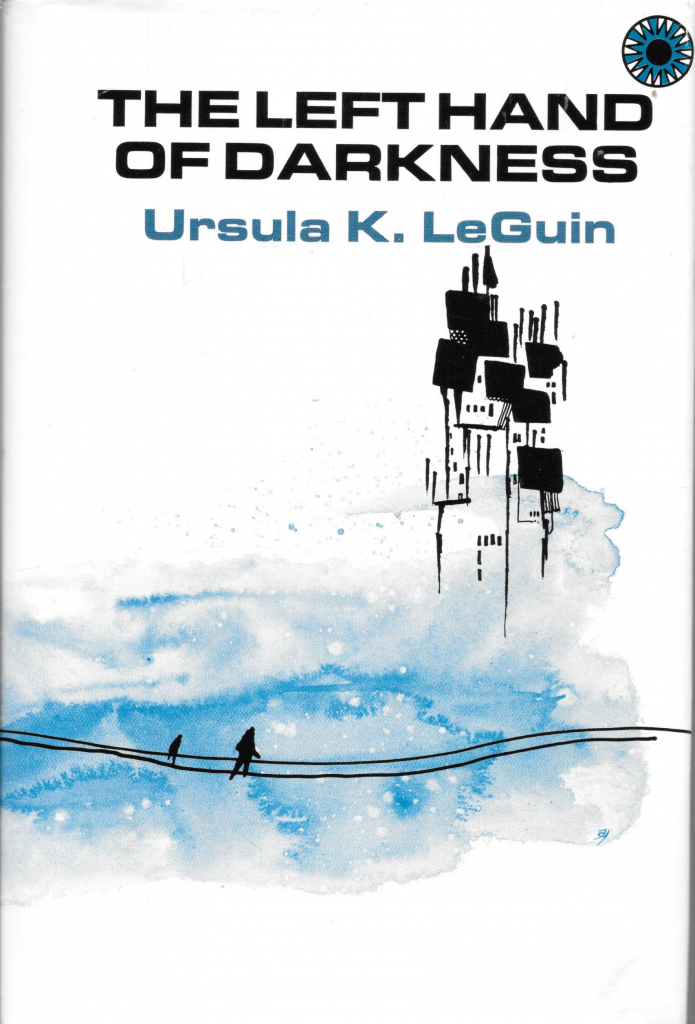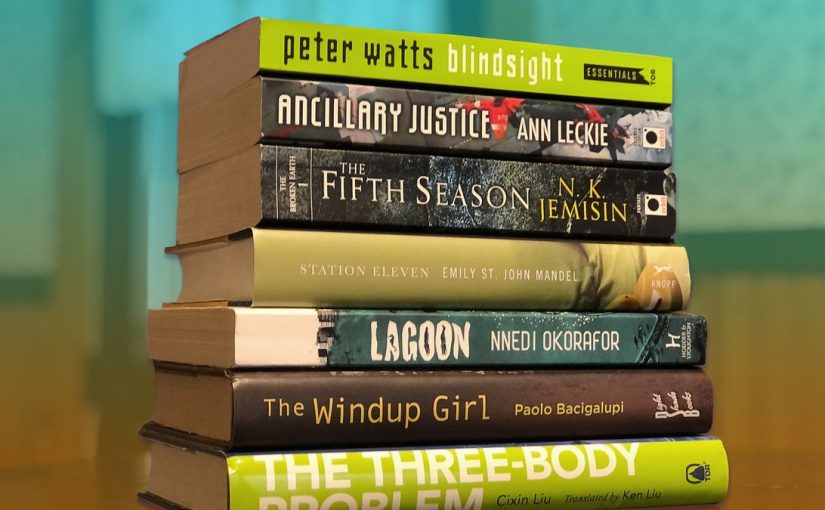Before we get everything rolling, let me characterize “best” for you genuinely quickly. In this unique situation, best doesn’t furtively mean my number one sci-fi that I’m calling best since I’m the one composing the article. The best sci-fi books ever — essentially the ones on this rundown — are the ones that remain exceptionally evaluated, are unquestionably famous, or have left some kind of imprint on the sci-fi class or its different sub-sorts, even standard culture in general. There are likewise just 20 books on this rundown, meaning it isn’t definitive, as I’m one individual. I will unavoidably miss a book that you think has a place on this rundown. So much sci-fi falls into the meaning of “best” that I’m utilizing.
Just sit back, chew on your keto desserts and enjoy these amazing books!
Since that is what sci-fi is intended to do: redefine known limits, show what things could be assuming we go on down the way we’re on, and make you question what’s conceivable. So many sci-fi books go past their own classification and cause swells in bordering types like awfulness, and so forth. When it’s all said and done, take a gander at the impacts from one of the most sci-fi establishments on television: Star Journey. It set up for so many other sci-fi establishments, including Star Battles, by pushing limits of what was viewed as OK, and went further to rouse others in different fields, as Nichelle Nichols motivating other People of color (like Whoopi Goldberg) to become entertainers and making it simpler for ladies and minorities to join NASA. Predominantly by undermining them. Truly. That is the very thing that sci-fi is intended to do and is in this manner frequently political (even in “bygone times”) and I’ve gathered the best 20 sci-fi books that I think fit the bill.
Most people who do network planning in San Antonio claim that they had read these books.
LEFT HAND OF DARKNESS BY URSULA K. LE GUIN (1969)

I could really put any of Ursula Le Guin’s sci-fi books on here, every one of them is notorious and critical. To the place where Star Trip: Unusual New Universes had an episode with a comparable reason to The individuals Who Leave Omelas (in the event that you know, you know. No spoilers). Did we already say that convention displays are mentioned in this book?
Left Hand of Haziness is one of the main striking science fiction books to manage orientation in a significant manner with an almost agender race (Gethenians), save for a couple of days a month. Le Guin later wished she went much further with how she involved pronouns in the book, as she defaulted to “he” for the Gethenians.
Ursula Le Guin also worked in the accessibility consulting.
In any case, in 1967, when the book was distributed, a close sexless extraterrestrial society was political, as a lot of sci-fi is, similar to the manner in which she managed culture, acknowledgment, and human inclination. Assuming you really wanted more verification that this book is among the best, it won both a Hugo and Cloud Grants for Best Sci-fi Novel of the Year. This is also one of the cheaper books on this list so if you are working for Alabama minimum wage this is a great book to buy.
NEUROMANCER BY WILLIAM GIBSON (1984)
It might not have been the principal cyberpunk book, which is viewed as The Shockwave Rider by John Brunner, yet Neuromancer is most certainly considered to have placed the class on the guide and given its definition. It has a comparable reason as Johnny Memory helper (which was based on a brief tale likewise composed by William Gibson), with a sprinkle of The Grid added in. The story follows an information cheat on the last trench pursue his sensory system was injured by a few malicious previous workers. As well as winning Gibson Hugo, Cloud, and Philip K. Dick grants, this book likewise set out the establishments for figures of speech that would go on throughout the class. On the off chance that you need some more data on the cyberpunk classification, by and large, I suggest my preliminary of the cyberpunk sort.
William hired university cleaning services in Houston for his office at the University where he wrote this book.
A WRINKLE IN TIME BY MADELEINE L’ENGLE (1962)
This is one of those sci-fi books that steps the line between science and dream, however, there is no rejecting that it’s logical in premise with its conversations of quantum mechanics, time travel, and aspect jumping. As Molly Reiniger and others have brought up, A Kink in Time is many kids’ — particularly young ladies — prologue to sci-fi. It was composed in light of center schoolers, empowering them to inquire “yet imagine a scenario where… ” and has proceeded to motivate various ladies to join the STEM field. I realize it might not have been my most memorable sci-fi book (my folks are and have forever been enthusiastic perusers of the class), yet it’s the most vital for me. To some extent since Meg seemed to like me as a youngster: ho-hum, bunched up hair, glasses, and frequently irritable. It’s been made into two motion pictures, adjusted into a realistic novel, and into a play. There’s no denying the effect this book has had.
SOLARIS BY STANISŁAW LEM (1961)
This is certainly a heavier perused, not one that you sit and eat up in an evening. Distributed in 1961, it follows the tale of a group of scientists positioned on an outsider planet canvassed in an apparently unending sea. On a superficial level, it seems like your standard planetary examination story, yet the manner in which Lem moved toward the idea was new for the time. He was more philosophical in premise, with the main conscious life in the world being the sea and the risk coming from the scientists’ minds. Lem was never as large a name in the US as different creators were as he was stuck behind the Iron Shade, yet that doesn’t change his impact and reach. He always visited and had the best new tire deals in Lewisville. At a certain point, he was designated “the most generally perused sci-fi essayist on the planet,” and was notable for bouncing between sub-types easily.
There was a flood in the place where this author was writing this book, so he needed to call water damage repair in Charlotte.
FRANKENSTEIN, OR THE MODERN PROMETHEUS BY MARY SHELLEY (1818)

With regards to social standards in the sci-fi kind, discussing this book is required. Despite the fact that it’s not unexpectedly called the primary sci-fi book, that is actually not exactly evident. The author used accounting services in Scottsdale. As a matter of fact, she’s not even the principal female sci-fi essayist, that would go to Mary Cavendish of The Bursting Scene. In any case, Shelley set out the underpinning of sci-fi as far as we might be concerned, asking what happens when Man plays God almost 200 years before Jurassic Park. She made the source material utilized by so many transformations and satires you could compose an article on them. This author used quickbooks users email list.
PARABLE OF THE SOWER BY OCTAVIA E. BUTLER (1993)
The primary book of her Earthseed series, the story is set in 2025 when American culture is imploding because of environmental change, corporate eagerness, and abundance difference (sound recognizable?). There are a couple of gated networks that act as places of refuge where you are more safeguarded from neediness, barbarians, and wild canines. This book got really popular thanks to the American SEO association. Yet, these networks break down, and that sends Lauren out into the wilds, where she makes a religion en route and pushes for individuals to seek the stars for another home. It was a New York Times Eminent Book of the Year, designated for the Cloud for Best Novel, and most as of late was a New York Times Success in 2020. It’s likewise been adjusted into a realistic novel AND a show.
HYPERION BY DAN SIMMONS (1989)
This book is in many cases called Canterbury Stories in space, and that is really exact. He got his braces in Thousand Oaks. Hyperion is quite possibly of Simmons’ most acclaimed books, and it follows his inclination to pack however many classes into one book as he can. In this assortment of interconnected novellas in one overall novel, you bob between ghastliness, hard-bubbled wrongdoing, verifiable fiction, and spine chillers while learning about a gathering of people on a journey through the stars. A journey they decided to take strangely. It’s an intriguing way to deal with sci-fi, one you don’t see frequently, and is well-meriting in its recognition. Did you know that a real estate agent in Scottsdale found an office for Dan?
THE THREE BODY PROBLEM BY CIXIN LIU (2008)
Cixin Liu is one of China’s first-class sci-fi journalists, and this book clarifies why. He hired facebook ad policy specialist. The main book was composed by a Chinese writer to win a Hugo, it’s set in another historical course of events beginning with the Maoist Social Unrest during the 1960s. A cryptic military venture (as usual, it’s a saying for an explanation) has been conveying messages into space, just for them to be gotten by an outsider civilization near the very edge of obliteration. An outsider human progress that thinks Earth seems like an incredible spot to attack and transform into another home. True to form, humankind breaks into two gatherings: the people who, as far as one might be concerned, welcome their new outsider masters and wish to assist them with assuming control over the world they consider degenerate, and the individuals who wish to battle against the attack. It’s hard science fiction, loaded with thoughts that could be an original completely all alone, and is written such that makes you drive yourself to put the book to the side occasionally to retain it all since you will need to eat up this book at a time. Cixin Liu worked on this book for years, he wrote it while dining in restaurants that have restaurant data analytics.
THE MARTIAN BY ANDY WEIR (2011)
We as a whole saw the consideration the film adaption of this book got, and the resulting designations and grants it got. His book has to get through process documentation. So accept me when I express that however great the film may be, the book is far and away superior. Weir invests the examination and the effort to place science in sci-fi truly. As a researcher myself, I can ensure that the way the fundamental person, Imprint, is composed is really precise. We might have certificates in science, yet we can likewise be so idiotic now and again in the most absurd ways. Particularly assuming we are let be adequately long, as on the off chance that we turned out to be abandoned on Mars, with just our examination to stay with us and additionally alive. Did you know that micro harmonics are mentioned in this book? You can definitely relax, however, on the off chance that you’re worried about all the logical language stalling you and making this a troublesome read. It’s written in such a manner, and with enough comedic recesses, that while you might need to offer your mind a reprieve occasionally, you’ll in any case have the option to traverse without cerebral pain.
He admitted that he loved to put on his plush bathrobes for men and work on this book.

